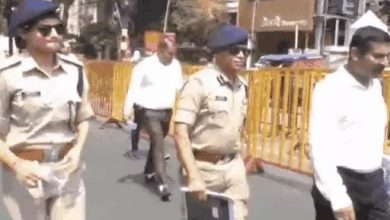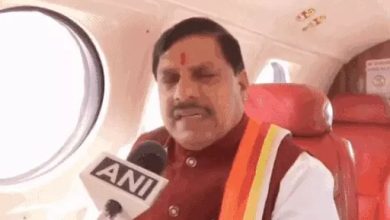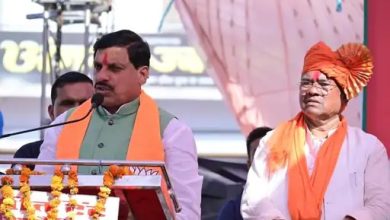Bankers’ workshop of National Rural Livelihoods Mission held
Bhopal: Loans upto Rs. 3 lakh each are being provided at only 7 percent interest rate to women’s self-help groups formed in intensive and non-intensive districts of the state covered under National Rural Livelihoods Mission. Besides, the SHGs will also be given 3 percent interest subsidy if they repay the loan in time in the districts covered under Integrated Development Programme. This was informed at a workshop held here this evening to seek bankers’ cooperation in implementation of National Rural Livelihoods Mission. The workshop was inaugurated by Additional Chief Secretary Panchayats & Rural Development Smt. Aruna Sharma.
Smt. Sharma urged banks’ higher authorities to cooperate in implementation of Mission’s activities. She said that efforts are being made to create additional income sources for poor rural families through NRLM and MNREGA. Training programmes are underway for employment and self-employment for rural youths. Women are being linked with self-help groups to empower them financially. She said that bankers should play pioneering role in economic upliftment of both landless and landholder poor rural people.
At the outset, CEO of State Rural Livelihoods Mission Shri L.M. Belwal threw light on its concept. He informed that the rate of interest being provided through bank linkage to SHGs is very low. Shri Belwal also gave details about Union Government’s guidelines and directives regarding opening of such groups’ bank accounts. He said that SHGs in the state repay loans in time. Rate of recovery of loans is 96 percent and no case of non-payment of loan has surfaced. Shri Belwal urged banks’ representatives to achieve targets of bank linkages in time.
Secretary Panchayats & Rural Development and Commissioner MNREGA Dr. Ravindra Pastor said that electronic funds transfer system (e-FMS) has been implemented from April 1, 2013 and Rs. 570 crore has been transferred through it so far. He lauded banks for their cooperation in implementing this new system. Dr. Pastor said that setting up of ultra small banks (USB) for financial inclusion in rural areas has brought about significant change. Madhya Pradesh has become pioneer state in direct cash transfers of assistance under various beneficiary-oriented schemes through banks. Soon, government officers’ teams from Maharashtra, Bihar and Odisha will visit Madhya Pradesh to observe its successful implementation.
Field General Manager of Central Bank of India Shri Umesh Singh suggested to institute a health risk fund for members of women’s self-help groups. He stressed the need to train ASHA workers of Rural Health Mission and business representatives of ultra small banks and link them with the mission. Central India Rural Bank’s Chairman Shri Taneja and Narmada-Jhabua Bank’s Chairman Shri Raghvendra hailed level of awareness and self-confidence of members of SHGs. On the occasion, information was given about efforts to make rural youths self-reliant through Rural Self Employment Training Institutes (RESTIs) in the state. The programme was conducted by State Plan’s Manager Shri Ashok Agrawal. Representatives and officers of all major banks were present on the occasion.
It is noteworthy that all 51 districts of Madhya Pradesh will be linked in phases with National Rural Health Mission (NRLM) during 12th Five-Year Plan period. As many as 378 clusters will be formed under the mission in 313 development blocks and efforts will be made to ensure financial upliftment of poor people in 52 thousand 117 villages. Ten tribal-dominant districts have been covered under the mission in the first phase. Besides, mission’ livelihood activities are also underway in the non-intensive districts where Swarn Jayanti Gram Swarozgar Yojana (SGSY) was being implemented under the first phase.





